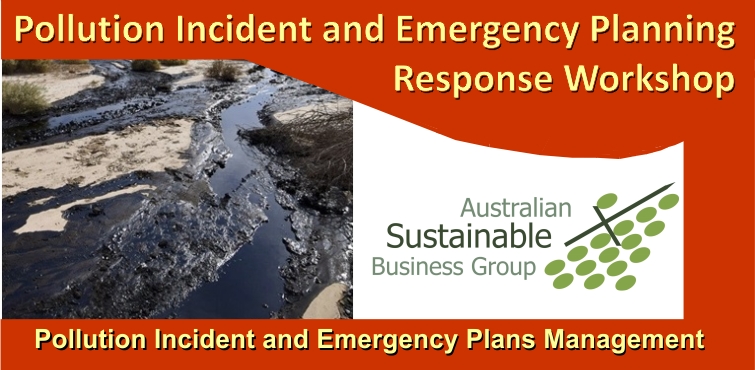
Pollution incidents are in the highest risk area of environmental management.
Emergency Plans are a core legislative requirement under WHS legislation, but many are poorly done.
Is your PIRMP well integrated into your Emergency Plan set?
When was the last time your Emergency Plan set was reviewed, tested or revised?
This workshop was developed to assist organisations to prepare, implement, test and update Emergency Plans. It will provide a legislative and practical knowledge of emergency management from an environmental, chemical and safety perspective. It will also provide advice in the implementation and management of systems and getting staff to uptake these requirements.
Already this year there have been 45 pollution fines and penalties issued in NSW by the EPA. Common types types of incidents will be analysed in the workshop to provide a clearer view on where the regulatory focus is and how to minimise your risks in these areas.
Pollution Incident Response Management Plans (PIRMP) required under environmental laws overlaps with that covering the emergency planning. If poorly organised this can lead to a confusing and perhaps contradictory cross linkages between documents. The NSW EPA has flagged it will be upgrading the standards for PIRMP compliance especially testing and updating of plans.
Workshop: A half-day workshop designed to help participants understand how to go about writing, testing and implementing Emergency Plans under the Workplace Health and Safety laws and Protection of the Environment Operations Act and Regulations covering:
- Analysis of incidents resulting in fines or other penalties
- Legislative requirements for emergency preparedness, plans and PIRMP preparations
- Emergency Planning under Work Health and Safety legislation
- Emergency Planning for hazardous chemicals, asbestos and other additional areas
- Requirements for Pollution Incident Response management Plans for sites holding Environment Protection Licenses
- Obligations for implementing and reporting to government agencies following an incident
- Managing multiple Emergency Planning and its documentation
- Developing effective Emergency Management Planning including:
- Emergency management processes
- Allocation of roles and responsibilities
- Ensuring compliance with Environment Licenses and general environment laws
- Risks, risk assessments and their management
- Chemical risk management
- Pollution risk management under PIRMPs and for general environmental protection
- Prevention and preparedness
- Evacuations, safe routes and assembly areas
- Testing and training in emergency and PIRMP requirements
- Incident reporting analysis and updating
- Case study review and assessment
Dates: Tuesday 20 June 2018
Time: 8:20 am (Registrations) for 8:30 am to12.30 pm
Venue: The Chatswood Club, Level 1, 11 Help Street, Chatswood
Cost: $285 (ASBG Members) or $345 (Non Members)
